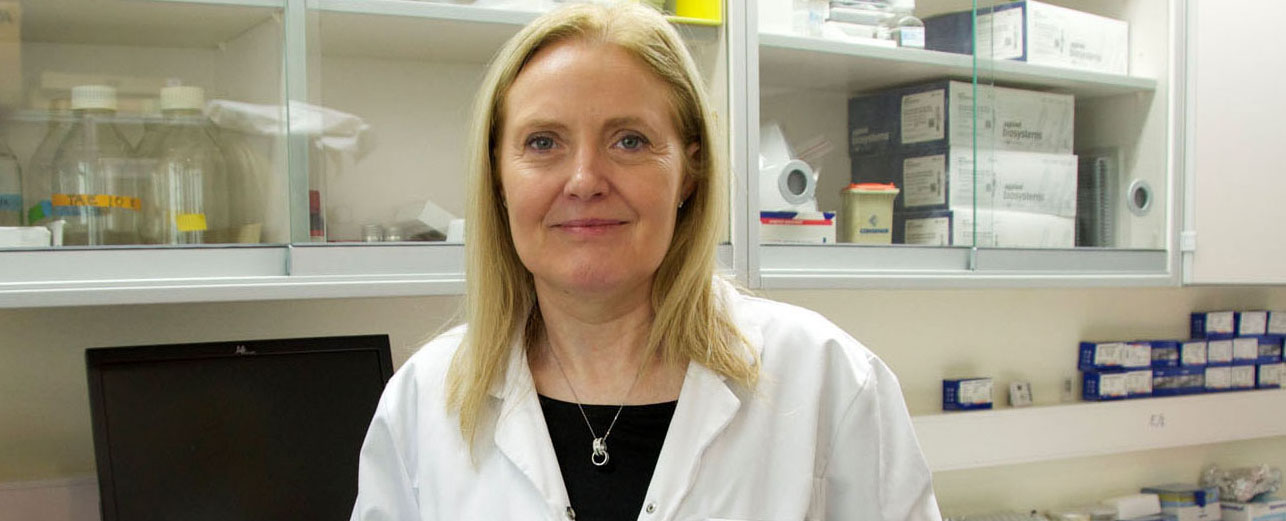When Dolors Corella Piquer (Onda, Castellón, 1966) received the 2018 Rey Jaime I Award for Medical Research, this professor of Preventive Medicine and Public Health at the University of Valencia had already been body and soul devoted to science for 30 years; just the same ones that the famous awards turned raised by a jury of Nobel laureates and world-class scientists. Nice coincidence to recognise the contribution of this Castellón native from La Plana Baixa to the birth of Nutritional Genomics, an emerging discipline that studies interactions between food and the genome and that can improve public health through personalised nutrition programs for disease prevention.
Dolors Corella contributed to worldwide demonstration of the benefits of the Mediterranean Diet in people with cardiovascular risk. This fact is indisputable, among other things because she is part of Predimed, one of the projects responsible for the inclusion of this diet of ours in the official guidelines of healthy life in many countries like the US”
It all started when, after obtaining a degree in Pharmacy in 1989, she began her pre-doctoral training at the Institute of Cytological Research in Valencia – germ of biomedical research in Spain – at the hands of Professor Santiago Grisolía and attracted by the figure of Severo Ochoa, who awarded her her first research grant.
Intuition that some genetic issue must be conditioning the response of human metabolism to food intake and that lifestyle could become a tool for health led her to investigate the world of genomics for the prevention of cardiometabolic diseases, specifically in the study of gene-environment interactions and especially within the field of Nutrition. And in this line, it did not take long to collaborate with prestigious scientists around the world and to participate in international projects that have been key to the development of research in Health and Nutrition. Such as Framingham, who identified cholesterol and high blood pressure as cardiovascular risk factors; or the National Health Study of Singapore (1998), the most important international study on gene-diet interactions to determine cardiometabolic diseases, funded by the Singapore Ministry of Health under the WHO guidelines.
“Dolors Corella’s contribution to worldwide demonstration of the benefits of the Mediterranean Diet in people with cardiovascular risk is indisputable, among other things because she is part of Predimed, one of the projects responsible for the inclusion of this diet of ours in the official guidelines of healthy life in many countries like the US”.
A fervent defender of this valuable cultural heritage – the Mediterranean Diet – which represents much more than a simple nutritional guideline – “it is healthy and sustainable; we not only have to think about ourselves but also about the environment”, she asserts –, she is recognised as one of the main researchers in food research. She is endorsed by more than 350 articles in high-impact international journals and numerous reviews around the different milestones that she has as a researcher: on the one hand, having introduced interdisciplinarity in her field of research and having created the current study methodology on gene-diet interactions. On the other hand, showing that a genetic susceptibility does not necessarily mean a disease.
She claims that the road has not been easy. The premature death of her scientific mentor –professor Pedro Cortina – left her scientifically orphaned when she was not yet thirty years old, and her career was precipitated by a solo path; a promising, innovative path, but barely started. “Fighting with the lack of economic resources for research and the disadvantage of being a woman in a very masculine scientific environment made work very difficult”, she says. From 2006, Dolores Corella is also CIBEROBN group leader.
In 2019 she became a member of the Royal National Academy of Pharmacy (RANF), endorsed by her scientific and academic career. We spoke with her, shortly after, in her small departmental office located in the Faculty of Medicine, on the Blasco Ibáñez Campus of the University of Valencia, behind a table full of piled up papers; reports that document the ideas it transmits, loaded with knowledge, experience, innovation… And we talk about nutrition, diet, health, research and the past, present and future of Medicine, a branch of science in constant review since the Human Genome was sequenced and technology began to offer previously unthinkable tools to interpret and manage our genetic material. We ended up understanding the importance of “omics”, disciplines “without which it is no longer possible to understand medical research”, and we were convinced that introducing the gender perspective in the scientific method is a fundamental question if we want to have quality science.
Olga Dénia
